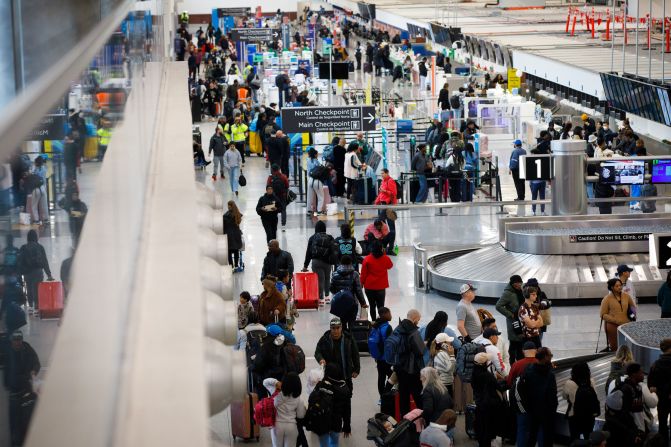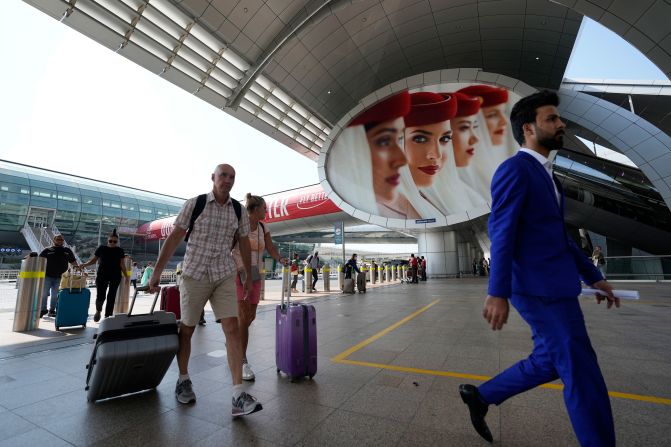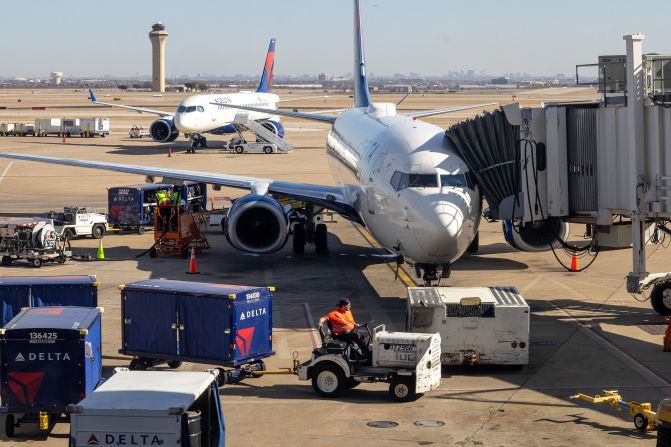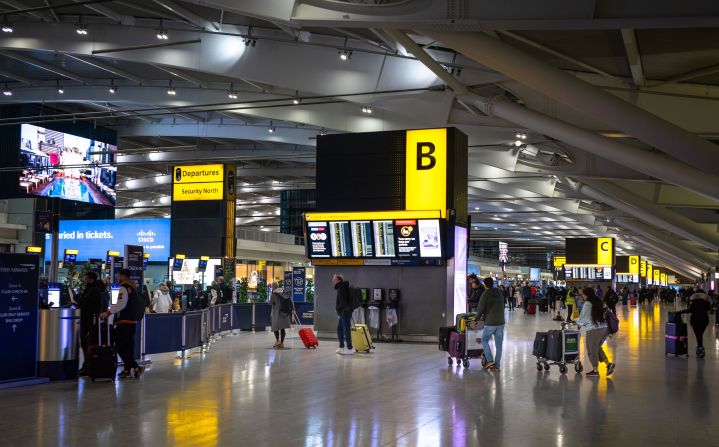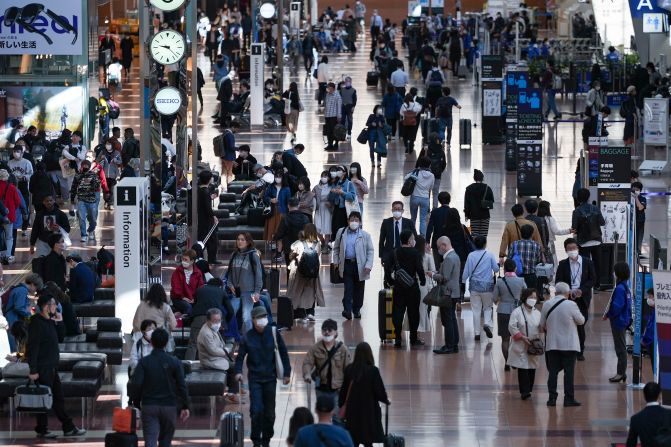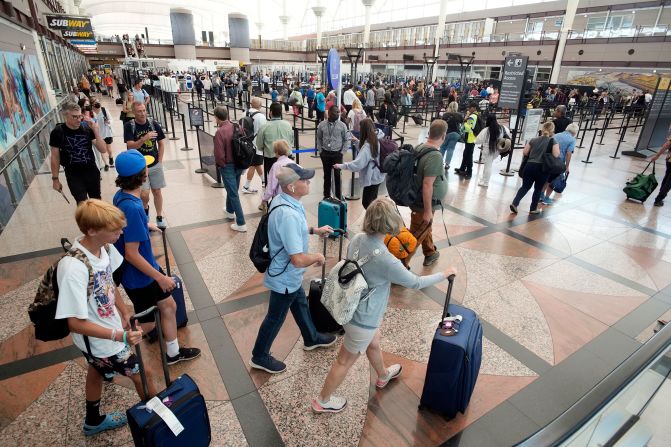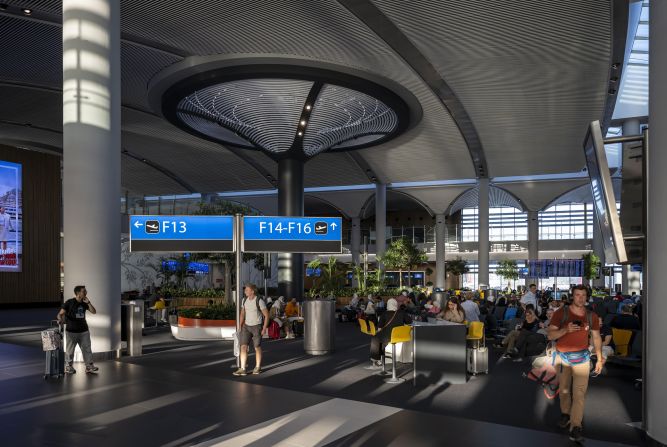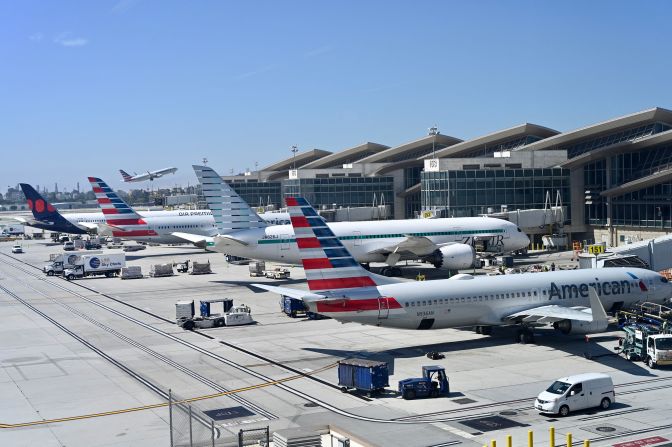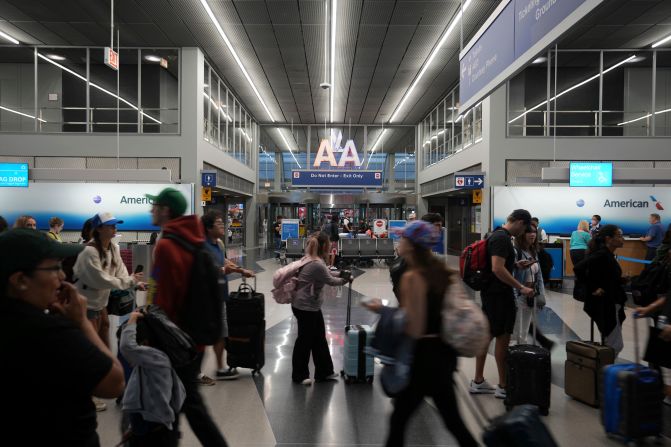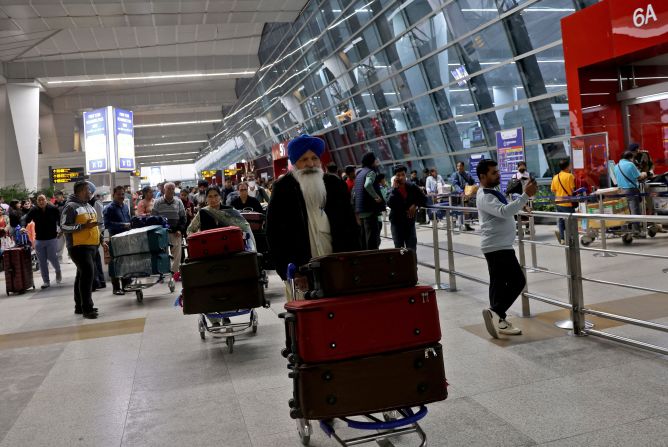Globe-trotters are on the move again in a big way, boosting the rankings of a handful of international aviation hubs on the list of the world’s busiest airports.
There’s no change at the top of the list. The No. 1 airport for passenger volume in 2023, Atlanta’s Hartsfield-Jackson International, has held that position every year — except pandemic-walloped 2020 — for more than two decades.
But for the first time, Dubai takes the No. 2 ranking, according to Airports Council International’s preliminary rankings for 2023, released on Monday.
“Dubai served around 87 million passengers in 2023. That is a year-to-year increase of 31%, and that is 1% higher than 2019. And they connected 262 destinations around 104 countries to 102 international carriers,” said Luis Felipe de Oliveira, ACI World’s director general.
The airport’s jump up from No. 5 in 2022 is representative of a big growth area in aviation, with industry expansion in emerging and developing economies in the Middle East and Asia Pacific expected at more than twice the rate of advanced economies in the decades to come, de Oliveira said.
But Atlanta doesn’t have too much to worry about for now. With 104.7 million passengers in 2023, Dubai’s not nipping at its heels just yet.
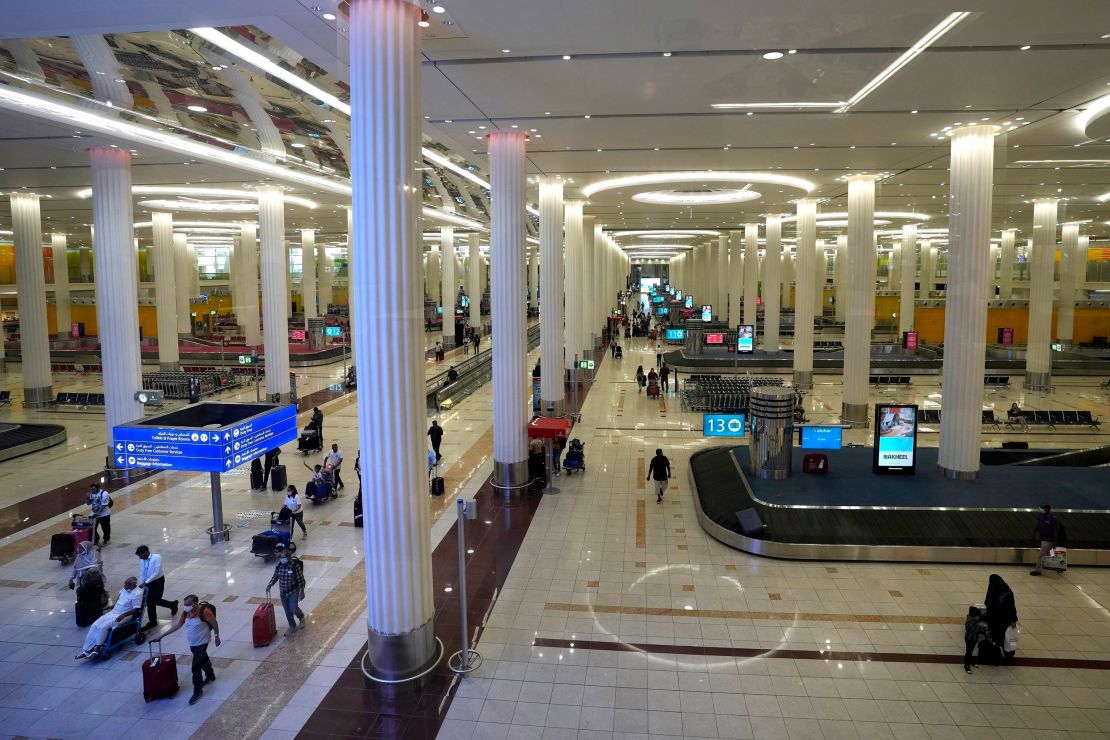
That figure is still about 5% below ATL’s pre-pandemic 2019 passenger total, but de Oliveira said ACI expects Atlanta to serve about 110 million passengers in 2024 – bringing the airport back to 2019 passenger levels.
Globally, passenger traffic in 2023 grew by 27% from 2022 to reach nearly 94% of 2019 results, with domestic travel rebounding more quickly from the pandemic — growing by 20% from 2022 to reach almost 97% of 2019 levels.
The world’s largest domestic market, the United States, had four more airports – all with significant domestic passenger shares – in the top 10 in 2023: Dallas/Fort Worth (No. 3), Denver (No. 6), Los Angeles (No. 8) and Chicago O’Hare (No. 9).
International travel is driving recovery
But in 2023, it was the international market that drove recovery, growing about 37% to reach about 90% of 2019 figures. And while Dubai is the No. 2 airport for overall traffic, it’s No. 1 in the world for international passengers. Plus, it has evolved into a destination in its own right.
London Heathrow, another strong international player, jumped up from No. 8 in 2022 to No. 4 last year. But it was Tokyo Haneda in Japan that made the biggest leap – from No. 16 to No. 5, thanks largely to Japan’s reopening. It’s a welcome indicator that Asia’s passenger numbers are getting back on track, de Oliveira said.
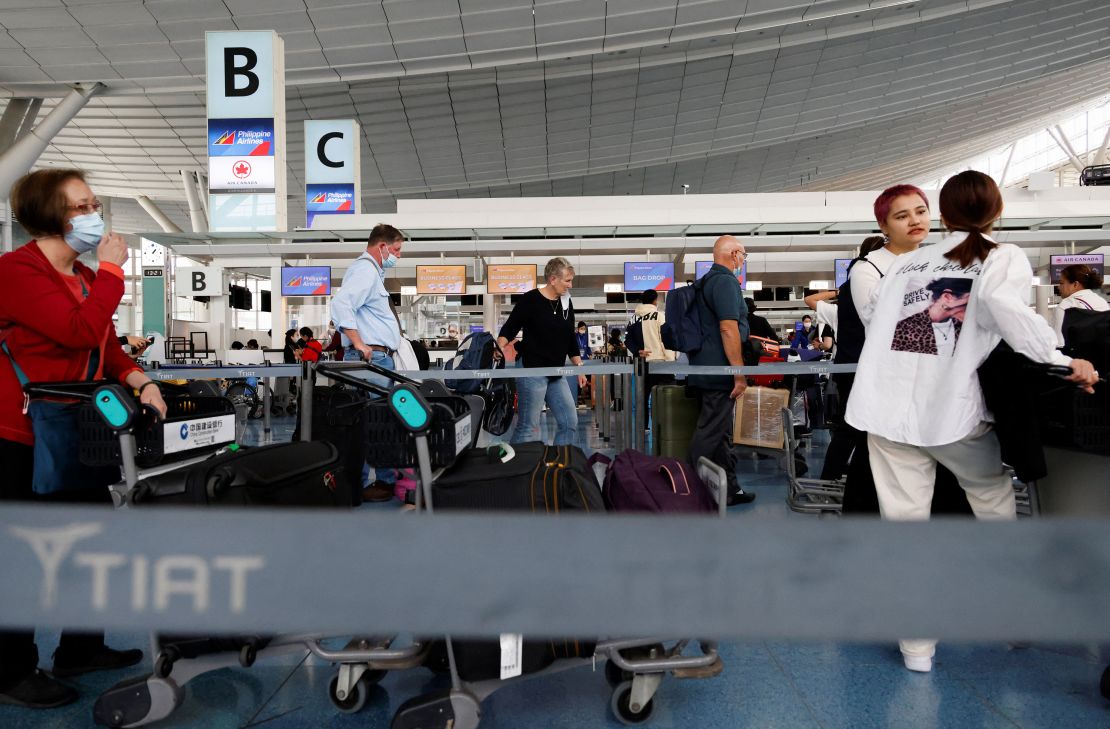
Istanbul’s airport held steady at No. 7, and Indira Gandhi International Airport in New Delhi dropped one spot from No. 9 in 2022 to No. 10 last year. India, with an enormous population that’s increasingly connected by air, is an example of growth in the industry’s capillary network in different parts of the world.
“In the US, you have a very good capillarity in the system – the small, medium and big airports connecting with each other. We don’t have that in many parts of the world,” de Oliveira said.
But it’s growing rapidly in India, he said, with Air India and IndiGo buying hundreds of aircraft and the government investing in the country’s more than 140 airports.
The 2023 global total passengers figure is close to 8.5 billion, according to ACI’s preliminary figures.
Smoothing out rough air
The global outlook is “very positive” for continued growth. “In 2020, we lost like 20 years of development of the aviation sector in one year, so we are recovering very fast considering that,” de Oliveira said.
In 2023, the system was able to cope better with surging demand than it did earlier in the pandemic rebound, he said, although there are still some pressure points, including a shortage of US air traffic controllers.
There’s also very high demand for new, more efficient aircraft to reduce fuel costs and increase sustainability.
In addition to the most recent production slowdowns precipitated by issues with Boeing aircraft, supply chain slowdowns have contributed to a backlog of orders. The supply chain issues have improved, but the backlog is still significant, de Oliveira said.
Aircraft delivery delays could affect growth if airlines aren’t able to cope with demand, but he added that airlines are consequently likely to delay retiring less efficient planes to continue to meet strong demand.
Everything that happened as a result of the pandemic has underlined the importance of being ready for future issues, de Oliveira said, and ACI is working with member airports to become more resilient.
“That is always with the focus on the passenger … We have this ecosystem, if the ecosystem doesn’t work well, the passenger suffers.”
World’s top 10 busiest airports for passenger traffic in 2023
1.? Hartsfield-Jackson Atlanta, Georgia (ATL): ?104.7 million passengers; up 11.7% from 2022
2.? Dubai, United Arab Emirates (DXB): ?87 million passengers; up 31.7% from 2022
3.? Dallas/Fort Worth, Texas (DFW): 81.8 million passengers; up 11.4% from 2022
4.? London Heathrow, United Kingdom (LHR): 79.2 million passengers; up 28.5% from 2022
5.? Tokyo Haneda, Japan (HND): 78.7 million passengers; up 55.1% from 2022
6.? Denver, Colorado (DEN): 77.8 million passengers; up 12.3% from 2022
7.? Istanbul, Turkey (IST): 76 million passengers; up 18.3% from 2022
8.? Los Angeles, California (LAX): 75.1 million passengers; up 13.8% from 2022
9.? Chicago O’Hare, Illinois (ORD): 73.9 million passengers; up 8.1% from 2022
10. Delhi, India (DEL): 72.2 million passengers; up 21.4% from 2022
